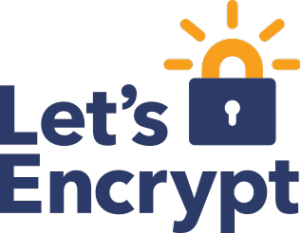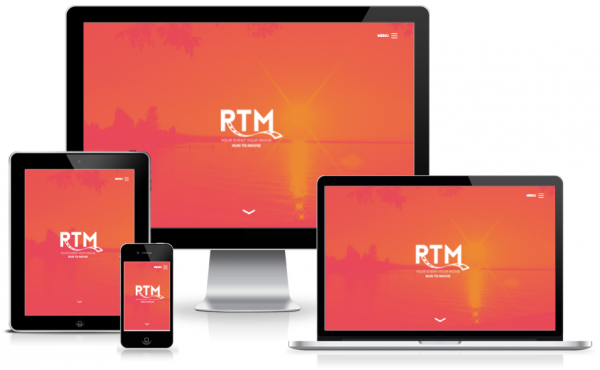In the 88th issue of ProcessWire Weekly we will take a look at the latest core updates, list some recent highlights from the support forum, introduce new site of the week, and more. Read on!
This has been a busy week for the developer community. We've seen a wide array of intriguing discussions on the support forum, not to mention that the latest bunch of core updates introduce new and tremendously useful features.
As always, feel free to send us any feedback you might have, whether it's related to our first issue of the year or something more general. Hopefully you've all had a pleasant start of the year and are ready for a whole new year of awesomeness.
Thanks for being here and have a great weekend!
Latest core updates: more Repeaters, Repeater Matrix, and field rendering
Latest processwire.com blog post by Ryan is divided into three parts: latest Repeater upgrades, the release of the alpha version of the Repeater Matrix field, and a brand new feature just added to the 3.0 branch – field-level template files.
Weekly Repeater updates
Lately, a lot of effort has gone to bringing Repeaters to a whole new level, and that effort continues this week:
- Collapsed Repeater items can now be loaded asynchronously. Since ProcessWire doesn't render their inputfields until an item is opened, this will result in a huge performance boost on pages making extensive use of Repeaters.
- Support for Repeaters in Repeaters. While the idea may sound like something borrowed from Inception, it's not that far-fetched: I can personally name multiple situations where I've needed this and ended up using Repeaters within PageTable.
All things considered, the future of Repeaters is looking really bright right now, but just wait until you get your hands to the next item on our list – the Repeater Matrix field.
Alpha release of Repeater Matrix
Last week we discussed Repeater Matrix, the latest addition to the commercial ProFields module bundle. This new field extends regular Repeater field and adds support for different types of Repeater items in one Repeater field among other things.
If you've paid for the ProFields package, you can now grab the Repeater Matrix module and take it for a test drive – though please keep in mind that it's an early version, and may not be suitable for production use yet.
With that in mind, please let us know how the Repeater Matrix field works for you!
Field-level template files and field rendering
We've saved the biggest news last: field rendering support has just made its way to the 3.0 branch. What this means, in a nutshell, is that you can add files named after fields to /templates/fields/ directory and in your template files ask ProcessWire to render a field using said field-level template file instead of just returning the raw value.
Combining this with an image field – or perhaps a Repeater or PageTable field – allows you to create complex structures you can later reuse with ease. For an example, if you want to build a reusable image gallery based on a field called images, all you need to do is create /templates/fields/images.php and add your gallery logic there.
There are various ways to render fields: you can use <?= $page->render('body') ?> or the property-based alternative <?= $page->render->body ?> or even the shortcut underscore version <?= $page->_body_ ?>. It's also worth noting that, in addition to markup, field-level template files can return objects or just about any other data type.
For more details about the core updates this week, please head down tot he processwire.com blog. Thanks!
Our experiences so far with Let's Encrypt, the provider of free SSL/TLS certificates
 A few weeks ago we mentioned getting a free SSL certificate from Let's Encrypt. In that post we also promised that we would discuss Let's Encrypt in more detail "in our next issue". As we were just politely reminded by Ben Byford, that never happened – sorry about that.
A few weeks ago we mentioned getting a free SSL certificate from Let's Encrypt. In that post we also promised that we would discuss Let's Encrypt in more detail "in our next issue". As we were just politely reminded by Ben Byford, that never happened – sorry about that.
We're humans too, and humans tend to forget stuff – some more often than others. Either way, here's a quick update on our experiences so far. Please note that this text was written from the point of view of the weekly.pw site, not processwire.com.
Let's Encrypt
For those of not yet familiar with Let's Encrypt, it's a relatively new certificate authority providing free SSL/TLS certificates. Free certificates have been a controversial topic in the past, so it should be noted that Let's Encrypt is not just any shady organization - in fact they're backed up by a whole bunch of Internet giants and influencers, including Mozilla, Cisco, Facebook, EFF, and the team behind Chrome.
If you really need to ask why securing connections to your site with an SSL certificate is important, there are various good articles discussing what HTTPS and SSL certificates are and why they're important. If that's not enough, Google has officially announced that HTTPS (for which an SSL certificate is a prerequisite) is a ranking factor.
In a nutshell: if you're interested in securing your site and data, HTTPS connections are strongly recommended, and especially for personal and non-commercial projects a free certificate from Let's Encrypt is a very good option.
So far so good
To summarize our experiences so far, Let's Encrypt really works. After the initial struggle with setting things up everything has been going smoothly and so far we haven't heard any complaints about the certificate not functioning properly.
The biggest struggle, in the beginning, was related to the hosting environment: setting up Apache to work properly with separate SSL certificates for multiple sites hosted on the same server and so on. The Let's Encrypt client could be more helpful with some of its error messages, but once the environment is properly configured, the rest is a breeze.
Potential drawbacks
It's worth noting that for the time being Let's Encrypt certificates have to be renewed every 90 days. While that's plenty of time, it does mean that you have to be slightly more vigilant than with "regular certificates".
Apart from that, we haven't noticed any real drawbacks and, to be honest, we feel that it's a minor issue considering that the certificates are free and renewing them is really just one simple CLI command away.
Plesk and cPanel users
If you're a Plesk user, there's a Let's Encrypt Plesk extension you can use to get past these initial phases. Apparently cPanel has something similar in works, but we prefer not to link to that, as we're not entirely sure if it's "official" yet.
For more discussion about Let's Encrypt, we'd suggest taking a look at the support forum thread dedicated to this topic at processwire.com. For instructions on getting started, check out their official documentation.
All in all, we couldn't be more pleased with Let's Encrypt. For the time being it may feel a bit complicated and obviously doesn't provide the highest level of security required by large corporations etc. but in no time it will surely become the de facto standard for personal and non-commercial sites.
Highlights from the support forum
Here's our latest collection of highlights from our support forum. There's so much good stuff going on there on a daily basis that we couldn't possibly include it all here, but we've tried to make educated guesses about what you folks might find interesting. As always, please let us know if there's anything else you can think of that should be here!
- First of all, Ryan has been announcing his blog posts on the forum lately, and this has resulted in some pretty interesting discussion. Here's the thread focusing on this week's updates (3.0.5) and here's the thread for last weeks updates (3.0.4).
- Horst is looking for testing help with his brand new WireQueue module. Based on the GIF animation on the support forum thread it definitely seems interesting, so if you've got some spare time, why don't you give it a try?
- Most of us are web designers or developers and thus prefer to keep up with the constantly evolving browser market. As such, it's not much of a surprise that Microsoft's announcement about abandoning old versions of Internet Explorer has also made its way into our support forum.
- Last but not least, lately we've been having a very productive discussion about the ProcessWire brand. This discussion since then branched to a new topic focusing on the future of our own site, processwire.com. Please note, though, that both of these discussions are intentionally limited to registered users only!
If you're interested in getting ProcessWire news, discussions, and updates in real time, there's always something interesting going on at the support forum. We're only able to include a tiny selection of all that in our weekly updates, so head down to the forums for more action.
Site of the week: Run To Movie
 Our latest site of the week is Run To Movie, a one page website that represents Jonny Fontanive, Swiss media professional who produces, cuts, and edits videos. Unlike some of the bigger companies in the same business, Run To Movie provides services for the smaller customers too – movies you can send as a birthday gift and so on.
Our latest site of the week is Run To Movie, a one page website that represents Jonny Fontanive, Swiss media professional who produces, cuts, and edits videos. Unlike some of the bigger companies in the same business, Run To Movie provides services for the smaller customers too – movies you can send as a birthday gift and so on.
Run To Movie is a beautiful site and a good example of the one page genre: despite there only being one page on the site, there's plenty of information, and the lack of pointless navigation from page to page makes the browsing experience feel smooth and seamless. Behind the scenes AIOM is working it's magic and the layout is based on the Bootstrap front-end framework, but that's just about all we can tell from here.
Thanks to Jonny Fontanive and the team behind the site – kultiv.ch according to the impressum page – for building and sharing this site. It's looking very good indeed!
Stay tuned for our next issue
That's it for the 88th issue of ProcessWire Weekly. We'll be back with more news, updates, and content Saturday, 23rd of January. As always, ProcessWire newsletter subscribers will get our updates a few days later.
Thanks for staying with us, once again. Hope you've had a great and productive week, and don't forget to check out the ProcessWire forums for more interesting topics. Until next week, happy hacking with ProcessWire!
Post a comment